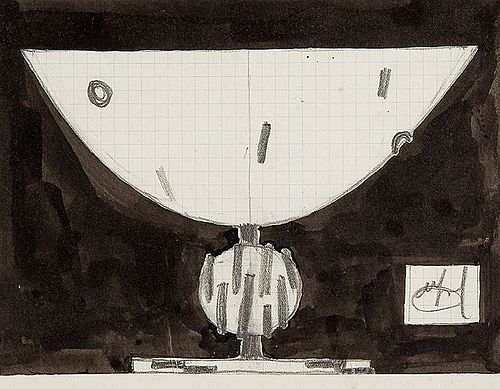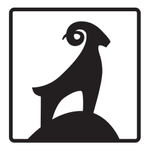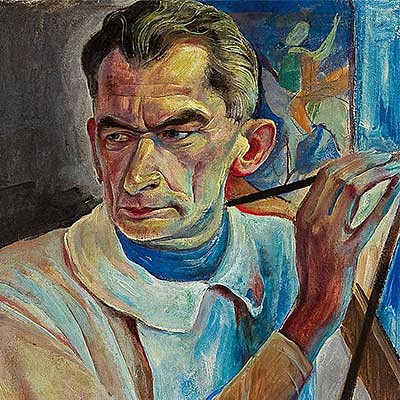JOSEF HOFFMANN* (Pirnitz 1870 - 1956 Vienna)
Lot 20
Estimate:
EUR€500 - EUR€1,500
$537.63 - $1,612.90
Absentee vs Live bid
Two ways to bid:
- Leave a max absentee bid and the platform will bid on your behalf up to your maximum bid during the live auction.
- Bid live during the auction and your bids will be submitted real-time to the auctioneer.
Bid Increments
| Price | Bid Increment |
|---|---|
| EUR€0 | EUR€10 |
| EUR€100 | EUR€50 |
| EUR€700 | EUR€100 |
| EUR€1,000 | EUR€200 |
| EUR€3,000 | EUR€300 |
| EUR€3,600 | EUR€400 |
| EUR€4,000 | EUR€500 |
| EUR€7,000 | EUR€1,000 |
| EUR€16,000 | EUR€2,000 |
| EUR€30,000 | EUR€3,000 |
| EUR€36,000 | EUR€4,000 |
| EUR€40,000 | EUR€5,000 |
| EUR€150,000 | EUR€10,000 |
About Auction
By Widder Auctions
Nov 28, 2022
Set Reminder
2022-11-28 10:00:00
2022-11-28 10:00:00
America/New_York
Bidsquare
Bidsquare : Viennese Art Nouveau, Expressionism, Modern Art
https://www.bidsquare.com/auctions/widder-auctions/viennese-art-nouveau-expressionism-modern-art-10414
Widder Auctions office@widderauktionen.com
Widder Auctions office@widderauktionen.com
- Lot Description
JOSEF HOFFMANN*
(Pirnitz 1870 - 1956 Vienna)
Design of a chalice, probably Wiener Werkstaette
indian ink and pencil/paper, 15.1 x 19.4 cm
assembled on cardboard, monogrammed JH
verso stamped ATELIER OB. BAUR. PROF. ARCH. DR. h.c. JOSEF HOFFMANN, numbered N # 16
provenance: Carla Hoffmann, private collection Vienna
ESTIMATE #Euro 500 - 1.500
STARTING PRICE #Euro 500
The Wiener Werkstaette (WW) was founded in 1903 by Josef Hoffmann, Koloman Moser and industrialists Fritz Waerndorfer, modeled on the British Arts and Crafts Movement and influenced by Viennese Art Nouveau. In 1905, WW accepted Carl Otto Czeschka as another creator (designer). Josef Hoffmann, a student of Otto Wagner and one of the central figures of Viennese Modernism in his role as an architect and designer, remained one of WW's most important designers until its bankruptcy in 1932. He was a friend of Gustav Klimt and Anton Hanak, among others. Otto Primavesi, Eugenia Primavesi and Robert Primavesi became important donors to the WW. In connection with the Vienna School of Arts and Crafts and the Vienna Secession, the community strove for a renewal of art based on craftsmanship. Vienna was to become the center of excellence in the field of arts and crafts. The company, sometimes referred to as Wiener Werkstatt, Vienna Workshop, Wiener Werkstaetten or Wiener Werkstaetten, aimed to unite the entire spheres of human life in terms of design, in the sense of a Gesamtkunstwerk. Its customers were mainly artists and the upwardly mobile Jewish upper and middle classes. Josef Hoffmann's acquaintance with Berta Zuckerkandl led to the first major commission: the Purkersdorf Sanatorium, planned by Viktor Zuckerkandl, Berta's brother-in-law, west of Vienna. Among WW's employees were about a dozen women who were crucial to the change in style from Art Nouveau to Art Deco in the 1920s, e.g. Vally Wieselthier, Gudrun Baudisch, Reni Schaschl, Hilda Jesser and Susi Singer. In 1948 Josef Hoffmann founded the oesterreichische Werkstaetten as the successor to the Wiener Werkstaette and Werkbund (oeWB), of which he had been a member until 1920.
PLEASE NOTE:
The purchase price consists of the highest bid plus the buyer's premium, sales tax and, if applicable, the fee of artists resale rights. In the case of normal taxation (marked #), a premium of 24% is added to the highest bid. The mandatory sales tax of 13%, for photographys 20%, is added to the sum of the highest bid and the buyer's premium. The buyer's premium amounts to 28% in case of differential taxation. The sales tax is included in the differential taxation. - Shipping Info
-
We will send you the invoice shortly after the auction. As soon as we have recieved the amount, the art can be picked up at Johannesgasse 9-13, 1010 Vienna. Please note that the buyer is responsible for pick-up and shipping of the lot. Should you wish to ship your items, please contact: Mailboxes Email: oper@mbe-co.at Tel: 01 5128855 Please note that storage fees may apply, should the pieces not be picked up within 14 days after invoicing for domestic and 28 days for international transportation. Our team will be happy to assist you with any further information at office@widderauktionen.com or at 0043 676 555 66 10.
-
- Buyer's Premium



 EUR
EUR CAD
CAD AUD
AUD GBP
GBP MXN
MXN HKD
HKD CNY
CNY MYR
MYR SEK
SEK SGD
SGD CHF
CHF THB
THB












